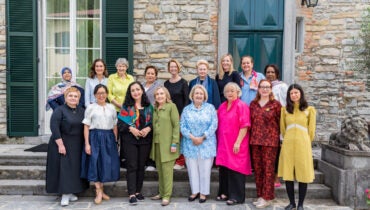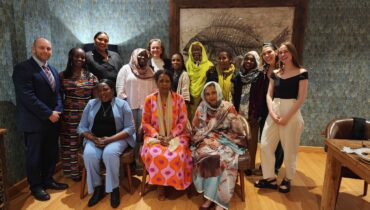Nearly two decades ago, Secretary Madeline Albright called the ratification of the Convention on the Elimination of All Forms of Discrimination Against Women (CEDAW) “long past time.” CEDAW, which is a keystone human rights document that is at the heart of the international gender equality agenda, was signed by President Carter on July 17, 1980 and submitted to the Senate for ratification shortly thereafter. Unfortunately, the United States, more than twenty years later, has yet to ratify the treaty, putting it in the same company as countries with dismal track records on gender equality, including Sudan, Somalia, and Iran. Of the 194 UN member nations, 187 countries have ratified CEDAW.
The Case for US Ratification: Political Momentum
It is overtime for the US to ratify CEDAW. Our affirmation of CEDAW would send a strong signal to the world of the US standing up for women’s human rights and exerting moral leadership. It also would also move us to eliminate gender discrimination in our own country. Although we have ended many discriminatory practices, we still have work to do. The twin forces of the #MeToo and Black Lives Matter (BLM) have underscored the need to eliminate existing discrimination. In the four decades following the drafting of CEDAW, there has rarely been a better political moment for ratification than right now.
Ratification of CEDAW can impact two important human rights issues that have dominated American public attention: racially motivated violence against Black Americans and sexual harassment and abuse. This is a moment of public reckoning on race and gender. At the same time, the COVID-19 pandemic has exposed deep inequalities that must be addressed. For example, studies by the Georgetown Institute for Women, Peace and Security and others show that women – and especially women of color – have suffered disproportionate impacts. According to a recent study by McKinsey, “women, especially women of color are more likely to have been laid off or furloughed during the COVID-19 crisis…” The pandemic has made clear that the public health crisis is being felt worst at the intersection of race and gender.
CEDAW can play an important role in helping to address the problems highlighted by the BLM and #MeToo movements and to counter the devastating rollback caused by the pandemic. In July 2020, CEDAW Committee adopted a statement on racial equality acknowledging that “racial violence is predicated on the intersectionality of ‘race’, class and gender.” The focus on intersectionality in the implementation of CEDAW is not ad hoc, as CEDAW has always had a commitment to addressing intersectional discrimination. For example, a recent study authored by Rangita showed that from 2016 to 2018, the percent of times that the CEDAW Committee mentioned minority rights in their concluding observations rose from just over 64 percent to 75 percent. Although there was a drop in the frequency of reference in 2019 and 2020, this may be because in every concluding observation across all five years, the Committee mentioned intersectionality and gender-based violence 100 percent of the time.
More than a Symbolic Gesture
While we believe that ratification of CEDAW can provide important support to addressing women’s rights in the United States, some reformers might want more than a symbolic act of ratification. The objectors can acknowledge the benefits of ratification presented thus far, but they might feel that ultimately ratification is simply more “talk” when their movements for equality demand substantive action. These critiques of the human rights agenda are frequently shortsighted as there are a number of tangible benefits to CEDAW ratification.
First, ratifying the Convention gives American human rights organizations focused on ending discrimination against women an opportunity to bring their advocacy to the international stage. American groups can present their findings to the CEDAW Committee and use the body as another vehicle of accountability to examine government actions or lack of action on these issues in the United States.
Second, ratification of CEDAW gives American reformers and lawmakers the opportunity to work with and learn from experts on intersectionality. Many intersectional issues facing marginalized groups in the United States are not uniquely American challenges. Instead, the tensions of intersectional discrimination are typically transnational, and the process of developing solutions can benefit from cross-border cooperation and experimentation. CEDAW provides an important platform to exchange lessons across borders.
Finally, the Convention can be an important tool for agenda setting in the U.S. The Concluding Observations and recommendations of CEDAW can serve as guidelines for lawmakers considering which legislative initiatives might successfully cut across political divides. The fact that these norms have been endorsed by an international body gives added credence and legitimacy to their fundamental status.
Reclaiming America’s role as a Leader on Human Rights
The role that CEDAW can play in strengthening America’s foreign policy has been well established by scholars such as Harold Koh of Yale Law School, who also served as Assistant Secretary of State for Democracy, Human Rights and Labor. We have also testified before Congress and written similarly. However, the role of CEDAW in the American domestic human rights sphere has been underexamined. Not only is CEDAW an essential foreign policy tool, but at a time of a public reckoning of the BLM and #MeToo movements, CEDAW would also serve as an important vehicle to address existing American institutional and structural discrimination against women through an intersectional lens.
When Melanne, as US Ambassador on Global Women’s Issues, met with the Afghan Minister of Justice to argue on behalf of Afghan women for enforcement of the Elimination of Violence against Women Law, she told him that Afghanistan had an obligation to comply with CEDAW. He looked at her with great consternation and said: “I have told those people in the foreign ministry to stop ratifying these treaties.” His response demonstrated a recognition that treaties such as CEDAW did indeed bring obligations with which ratifying nations are expected to adhere in their domestic policies.
It is, indeed, “long past time” for the US to ratify CEDAW.
Ambassador Melanne Verveer is the Executive Director of Georgetown Institute for Women, Peace and Security and the first US Ambassador for Global Women’s Issues. Rangita de Silva de Alwis is a Hillary Rodham Clinton Fellow at the Georgetown Institute for Women, Peace and Security, faculty at the University of Pennsylvania Law School, and a Nonresident Leader in Practice at the Harvard Kennedy School of Government’s WAPPP.


